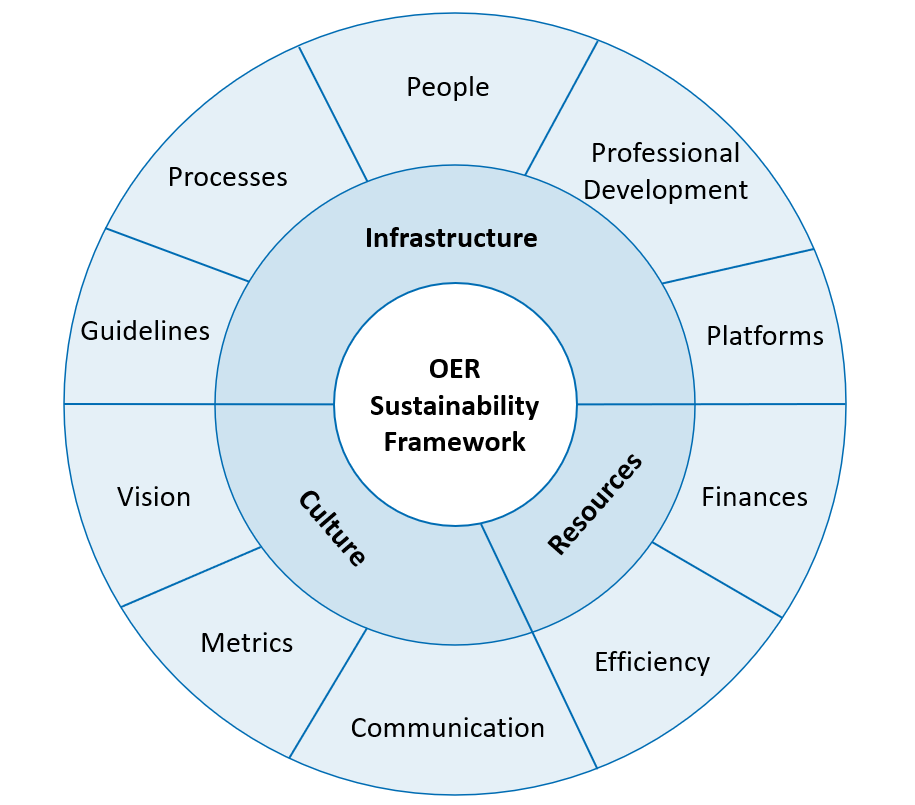Introduction
This OER Field Guide provides information and resources to help colleges implement sustainable OER programs on their campuses. Although “sustainability” is often interpreted as the financial resources necessary for continued support, it actually involves a broader conceptualization of resource requirements. The Guide presents a comprehensive OER framework built around ten individual components. When implemented as a coordinated system of integrated activities, it positions colleges to sustain OER well beyond their current state or grant funding initiatives.
This Field Guide is not intended to address the fundamental building blocks of OER course development, such as identifying OER resources, understanding copyright licensing, and adopting or creating OER content. Instead, it describes the scaffolding that should be built to support those activities. This scaffolding allows OER to grow from a singular campus initiative to an integral part of the institution’s academic program.
The framework presented below is intentionally comprehensive. Colleges may prefer to adopt a phased implementation, beginning with areas that either require the most development on their campus, deliver the easiest “early wins”, or represent the most logical approach based on their program’s current strengths and weaknesses.
The OER Field Guide is organized around three core components of the sustainability framework: [1]
- Infrastructure – Building the campus guidelines, processes, and capabilities necessary to support OER;
- Resources – Identifying the dollars or staff time required to support the work, as well as opportunities to conserve resources through efficiency improvements;
- Culture – Using OER to support broad institutional visions and goals, including measuring and communicating OER successes.

- 1 1 This OER Framework extends upon an initial framework developed by rpk GROUP as part of the Achieving the Dream OER Degree Initiative (Griffiths et al., 2018) ↵

